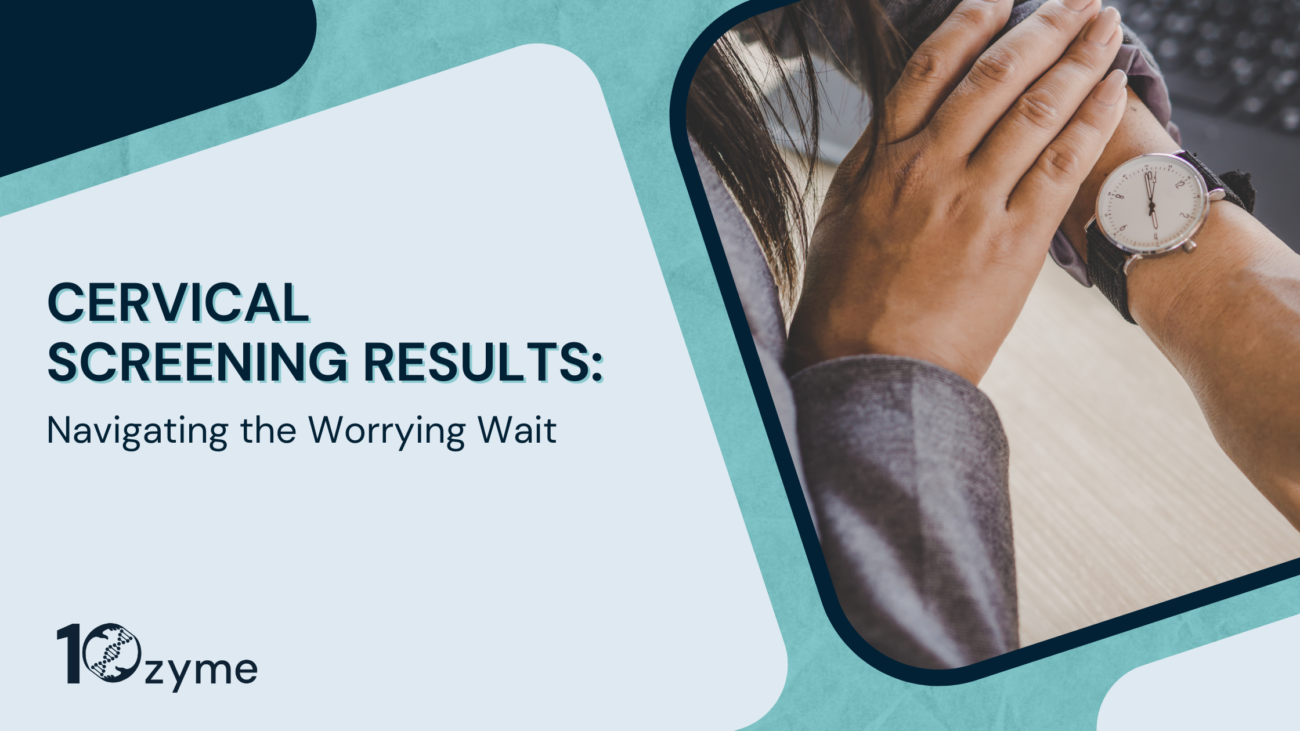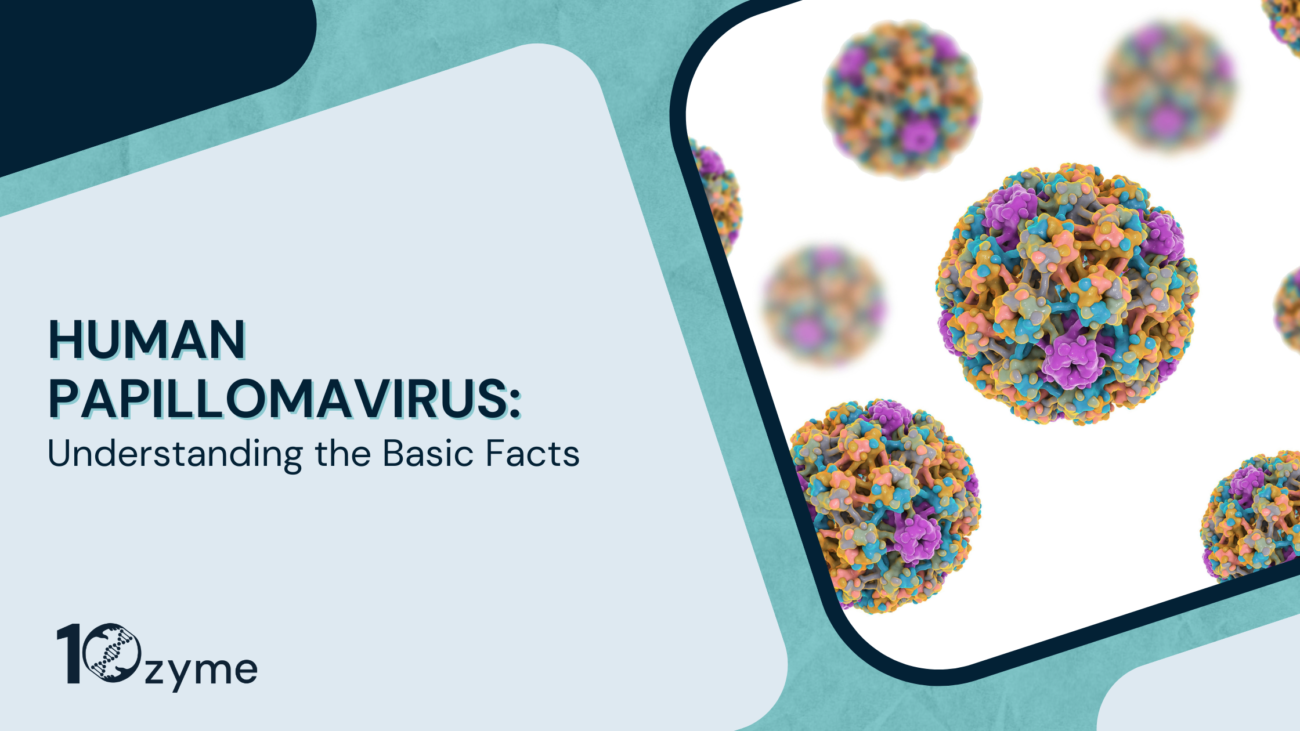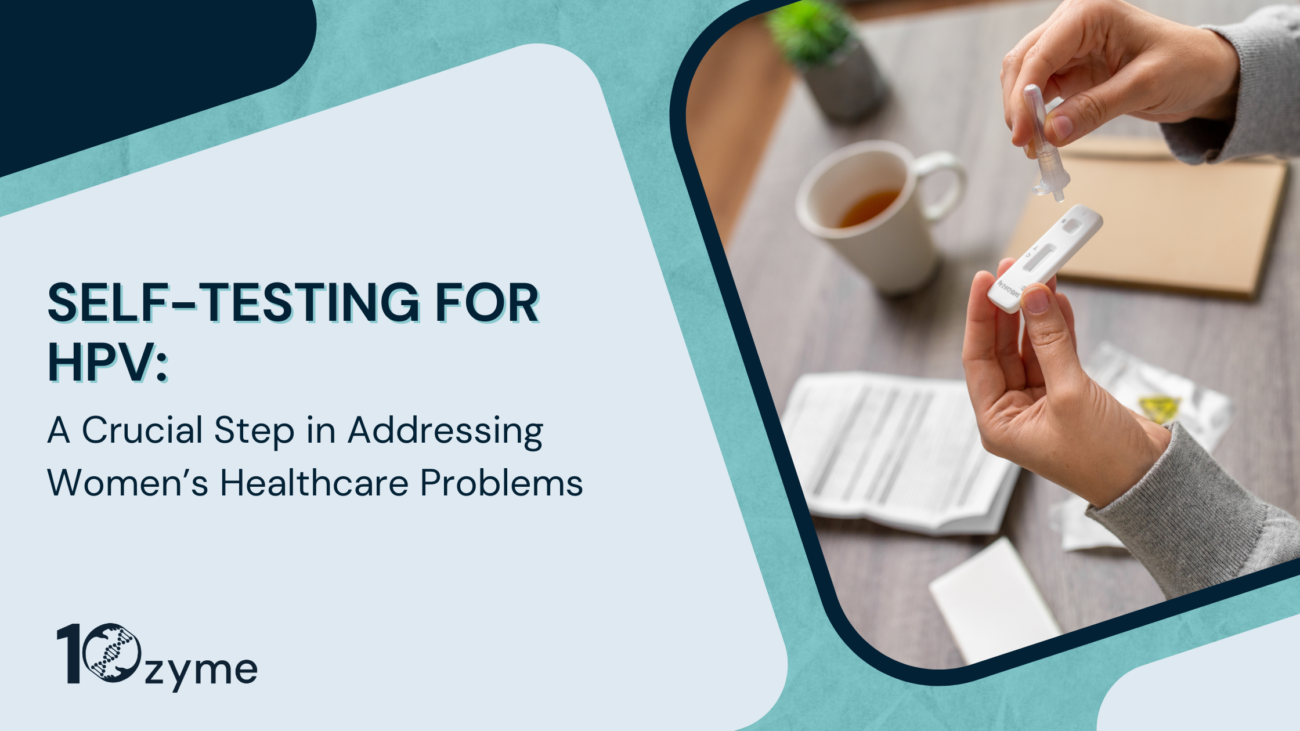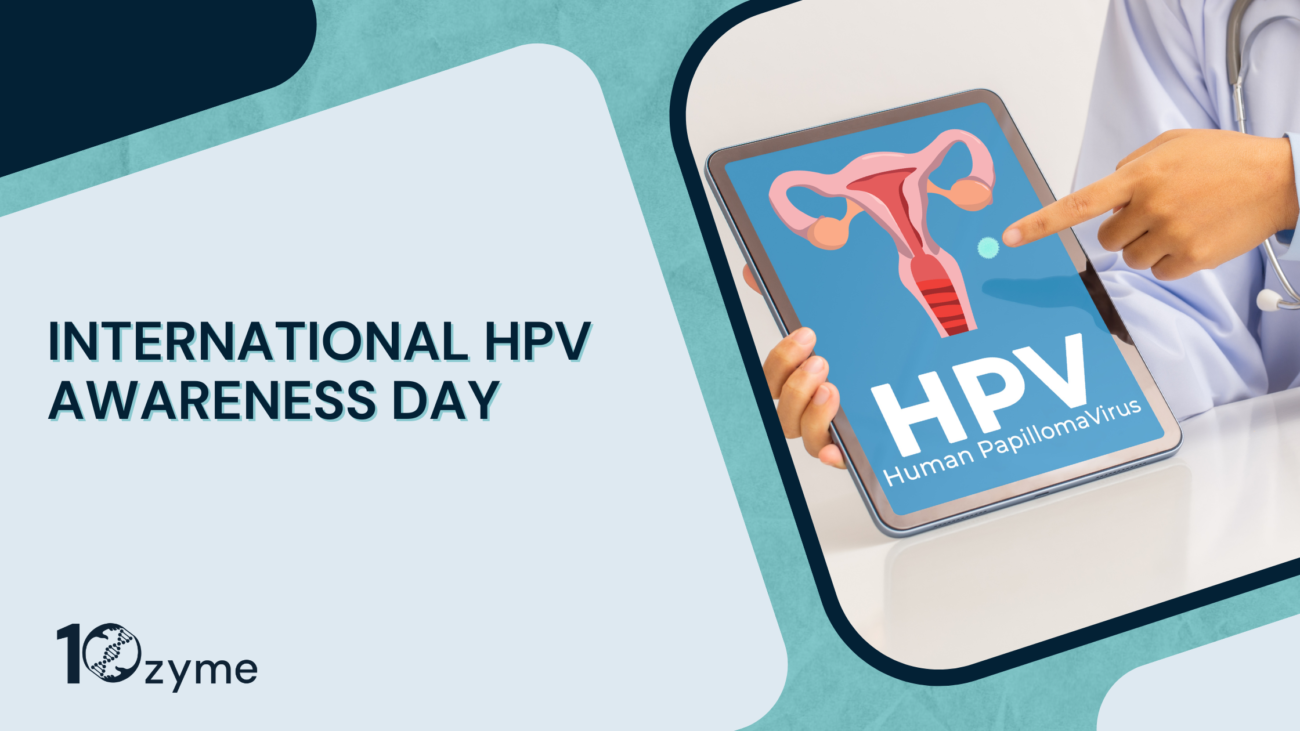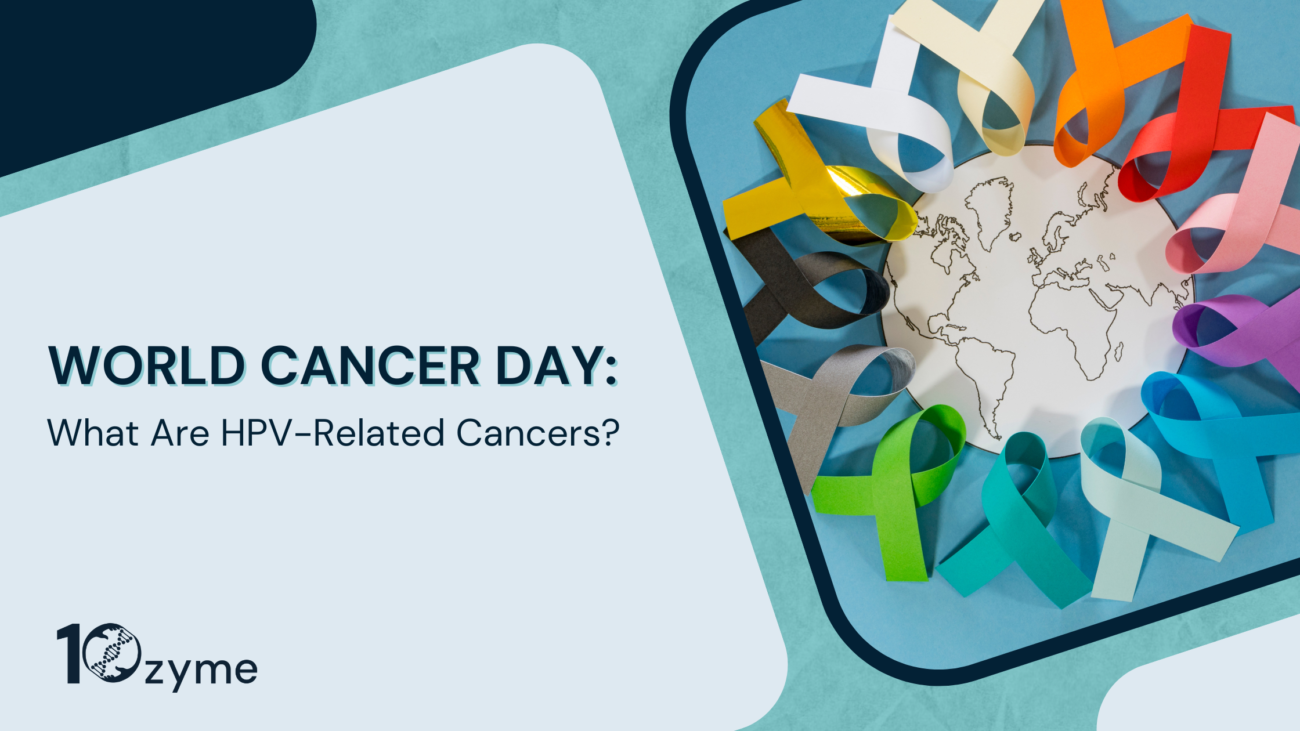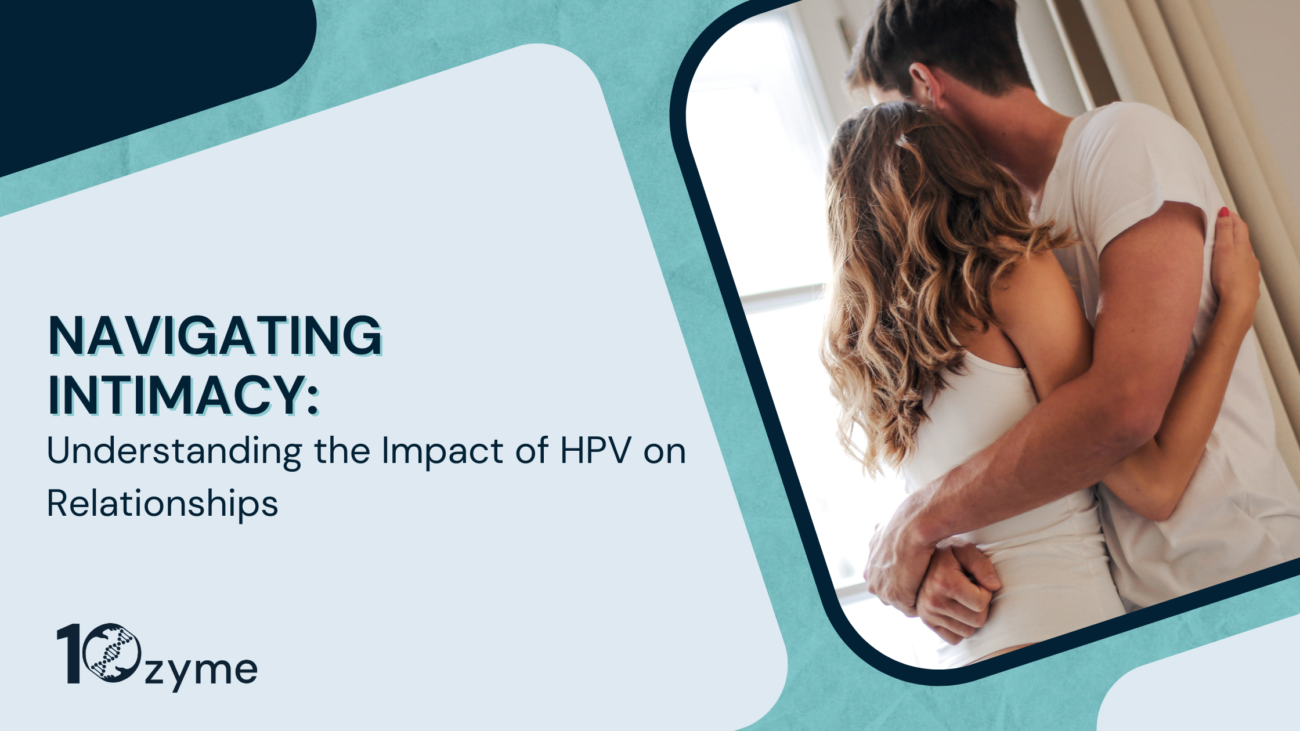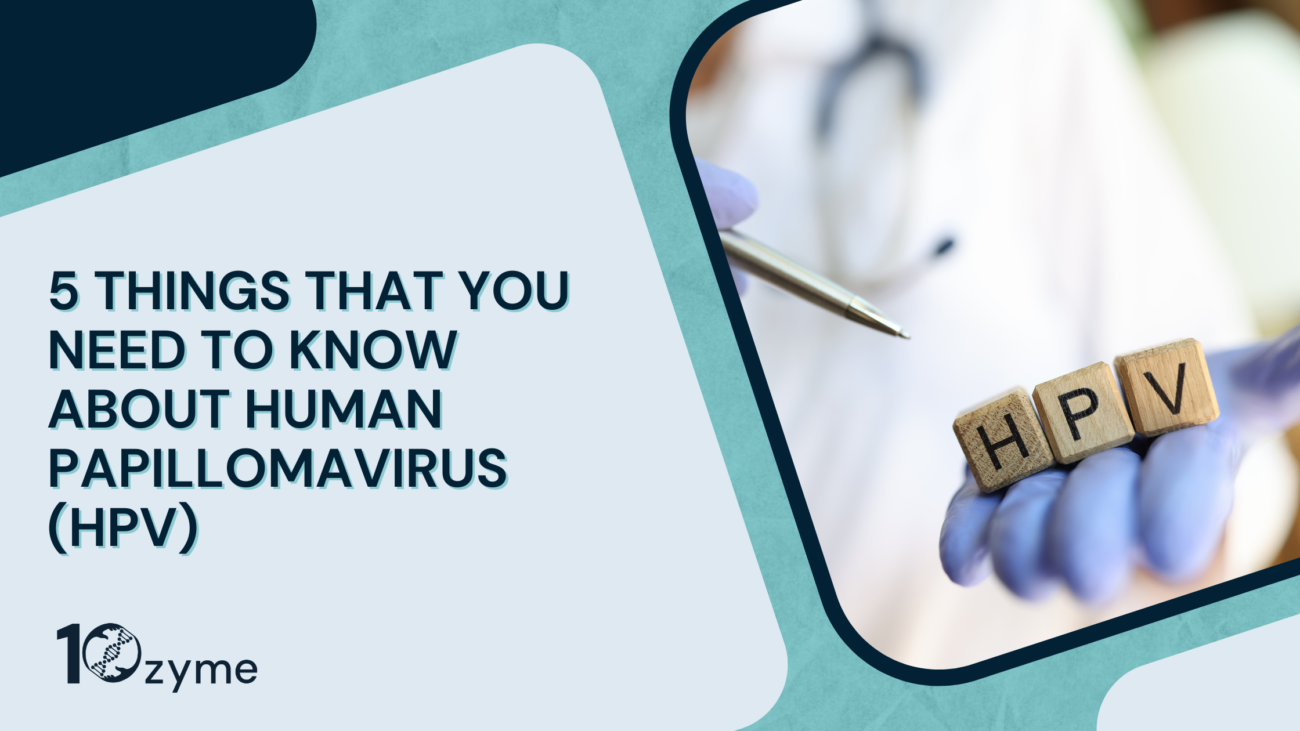HPV and Me: Managing My Mental Health
Written by Rhianne Kiley, BSc, MSc
Medically reviewed and edited by Dr Said Qabbaah, MBBS, MBA
Scientifically reviewed by Dr Angela Pine, BSc, MSc, PhD1
In the UK, approximately 3.5 million cervical screening tests are performed each year among the eligible population.1 Of these, just over 10% or 350,000, will test positive for high-risk human papillomavirus (hr-HPV), the virus responsible for over 99% of all cervical cancers.2,3
Considerable research has shown that an HPV-positive (HPV+) diagnosis negatively impacts mental health. For instance, one study found that individuals with an HPV+ result experienced significantly higher levels of anxiety and emotional distress compared to those who tested negative.4
An HPV diagnosis can lead to significant social and psychological challenges, primarily due to the virus’s sexually transmitted nature and its link to cervical cancer. Many individuals report feelings of stigma, anxiety, and stress, especially regarding their sexual relationships and the prospect of disclosing their diagnosis.5
HPV in a Relationship
Discovering an HPV infection can raise fears and uncertainties in a relationship, such as how the virus was contracted and how to disclose it to your partner. While HPV can introduce new dynamics and potential emotional strain, its impact varies based on communication, emotional resilience, and individual circumstances.
Importantly, having HPV doesn’t have to ruin a relationship; many couples successfully navigate these challenges. Key aspects to consider include:
-
- Communication: Open communication about HPV and its risks is vital for building trust and addressing concerns
- Intimacy: You can maintain a sexual relationship while being HPV-positive. It’s crucial to communicate your diagnosis and take precautions to reduce transmission risk, prioritising both partners’ wellbeing
- Health: Regular health check-ups and cervical screenings are essential for cancer prevention. Even if vaccinated, individuals should undergo screenings for early detection of HPV-related changes to reduce health risks
Managing Mental Health
Although the mental health effects of a positive HPV test may seem obvious, healthcare professionals have paid limited attention to the psychological impact of positive results or cervical cell changes, particularly regarding the need for improved patient communication.6
Ensuring appropriate follow-up procedures after a positive test is just as crucial as addressing patients’ emotional care to adequately protect their wellbeing.
Currently, support following an HPV+ diagnosis is limited, but here are a few steps you can take to ease your mind and help protect your mental health:
Understanding your Result
First of all, one must understand what an HPV+ result means and why it shouldn’t be a cause for concern. We recognise that a positive test result can be alarming, but understanding the facts about HPV can significantly reduce your worries.
Unfortunately, there is widespread misinformation and many misconceptions about HPV, largely due to a lack of adequate awareness and knowledge about the virus.7
HPV infections are very common; in fact, over 90% of sexually active men and 80% of sexually active women will contract HPV at some point in their lives. Fortunately, most HPV infections are controlled by the immune system.8
But if your HPV infection is not effectively controlled or your cervical screening shows cell changes, you’ll be invited for further review to help prevent cervical cancer.
You’ve already taken an important step by attending your screening appointment, getting closer to protection against cervical cancer—great job!
Connecting with Others
It’s understandable that it can often feel extremely difficult to discuss a positive HPV result, but your loved ones are here for you. Bottling up your emotions can be harmful, and those closest to you want you to know you can rely on them for support and comfort.
If you don’t have anyone close to talk to, contact your GP for help and advice. Alternatively, if you need to speak with someone urgently, you can reach out to NHS mental health services for immediate assistance.
Trusting your Healthcare Provider
After your results, your doctor will carry out the appropriate follow-up procedures to ensure an accurate diagnosis. This may involve another test in a year or a referral for a colposcopy for a closer examination. They’ll appreciate that you attended your cervical screening, as it allows them to monitor your health and help prevent cervical cancer. After all, it’s their job to care for patients!
Engaging in your Preferred Activities
Nobody wants to spend their free time worrying, so do something you enjoy! Whether it’s running, going to the cinema, meeting friends at the pub, hiking, getting your hair done, or gaming—choose what makes you happy! Your HPV+ result shouldn’t stop you from having fun. If you find that your HPV+ result is causing prolonged mental distress, please reach out to your healthcare provider.
Summary
Receiving a positive HPV diagnosis can be overwhelming, but it’s essential to remember that you are not alone in this journey. Understanding the nature of HPV and maintaining effective communication with those around you including family, friends, and healthcare professionals can significantly ease the emotional burden.
Prioritising your mental health is crucial. While HPV may introduce challenges, many individuals can successfully navigate these waters. By taking proactive steps, you can protect not only your physical health but also your mental wellbeing, ensuring that a positive HPV result does not define your life or relationships.
10zyme: Advancing women’s health
We’re developing a groundbreaking self-test with instant results to detect the main cause of cervical cancer: high-risk HPV. Detecting infections early prevents cancer ever developing.
By enabling self-testing, we aim to empower women, overcome stigma and anxiety, and help eliminate a disease killing hundreds of thousands a year globally. See our Education Section to find out more.
Please follow and support us on social media: LinkedIn, Instagram, and TikTok.
References:
-
- NHS England. (2023). Women urged to take up NHS cervical screening invitations. [Online]. Available at: https://www.england.nhs.uk/2023/11/women-urged-to-take-up-nhs-cervical-screening-invitations/ (Accessed 15/09/2024)
- King’s College London. (2023). Just 12% of women understand use of HPV test in cervical screening. [Online]. Available at: https://www.kcl.ac.uk/news/just-12-of-women-understand-hpv-test-cervical-screening (Accessed 15/09/2024)
- Cancer Research UK. (2015). Cervical Cancer statistics. [Online]. Available at: https://www.cancerresearchuk.org/health-professional/cancer-statistics/statistics-by-cancer-type/cervical-cancer (Accessed 15/09/2024)
- Chadwick, V., Bennett, K.F., McCaffery, K.J., Brotherton, J.M. and Dodd, R.H. (2022). Psychosocial impact of testing human papillomavirus positive in Australia’s human papillomavirus‐based cervical screening program: A cross‐sectional survey. Psycho‐Oncology, 31(7):1110–1119. doi: 10.1002/pon.5897
- McCaffery, K., Waller, J., Nazroo, J. and Wardle, J. (2006). Social and psychological impact of HPV testing in cervical screening: a qualitative study. Sexually transmitted infections, 82(2):169-74. doi: 10.1136/sti.2005.016436
- Symmons, S.M., Waller, J. and McBride, E. (2021). Testing positive for Human Papillomavirus (HPV) at primary HPV cervical screening: A qualitative exploration of women’s information needs and preferences for communication of results. Preventive Medicine Reports, 24(10159). doi:10.1016/j.pmedr.2021.101529
- Music, R. NHS Cervical Screening Programme. (2019). Raising awareness of HPV – a view from Jo’s Cervical Cancer Trust. [Online]. Available at: https://phescreening.blog.gov.uk/2019/05/30/raising-awareness-of-hpv-a-view-from-jos-cervical-cancer-trust/ (Accessed 23/09/2024)
- National Health Service (NHS). (2022). Human Papillomavirus (HPV). [Online]. Available at: https://www.nhs.uk/conditions/human-papilloma-virus-hpv/ (Accessed 23/09/2024)




